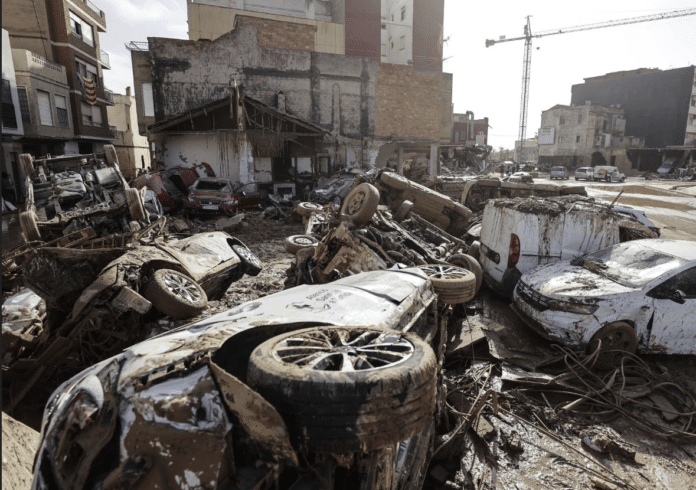Tuesday’s DANA storm that ravaged parts of Valencia Province has left an indelible mark on the region, both human and economic. As the search for missing persons continues and the nation mourns the loss of over 150 lives, the financial repercussions of this natural disaster are becoming increasingly apparent.
Insurance Industry Faces Record Claims
The insurance sector is bracing for the largest claims ever recorded in response to such an event. While the exact cost is still being calculated, industry experts anticipate a significant financial burden. The previous DANA in 2019 cost the Compensation Consortium 737 million euros, and the 1983 cold drop, which affected the Basque Country, Navarra, and Cantabria, totalled 821 million euros. With this year’s event surpassing both in terms of intensity and scale, the financial impact is expected to be even greater.
Businesses and Administrations Bear the Brunt
Businesses, particularly small businesses and the self-employed, are facing substantial losses. Many have been left without operations due to flooding and damage to infrastructure. Additionally, public administrations are grappling with the costs of repairing damaged public buildings and services.
Challenges for the Justice System and Public Services
The DANA has significantly disrupted the justice system in Valencia, with over half of the judicial districts closed and proceedings suspended. Forensic teams are working tirelessly under challenging conditions to identify victims.
Public services, including the Social Security office (SEPE) and tax offices, have also been affected, with many offices closed and employees working remotely. The healthcare sector has faced disruptions, particularly in the La Ribera region.
The Road to Recovery
The economic and social impact of this DANA will be far-reaching. The recovery process will require significant investment and cooperation between the public and private sectors. As the region begins to rebuild, it is crucial to address the underlying issues that contributed to the devastation, such as climate change and infrastructure vulnerabilities. By investing in resilient infrastructure, improving early warning systems, and promoting sustainable practices, Spain can better prepare for future extreme weather events.





